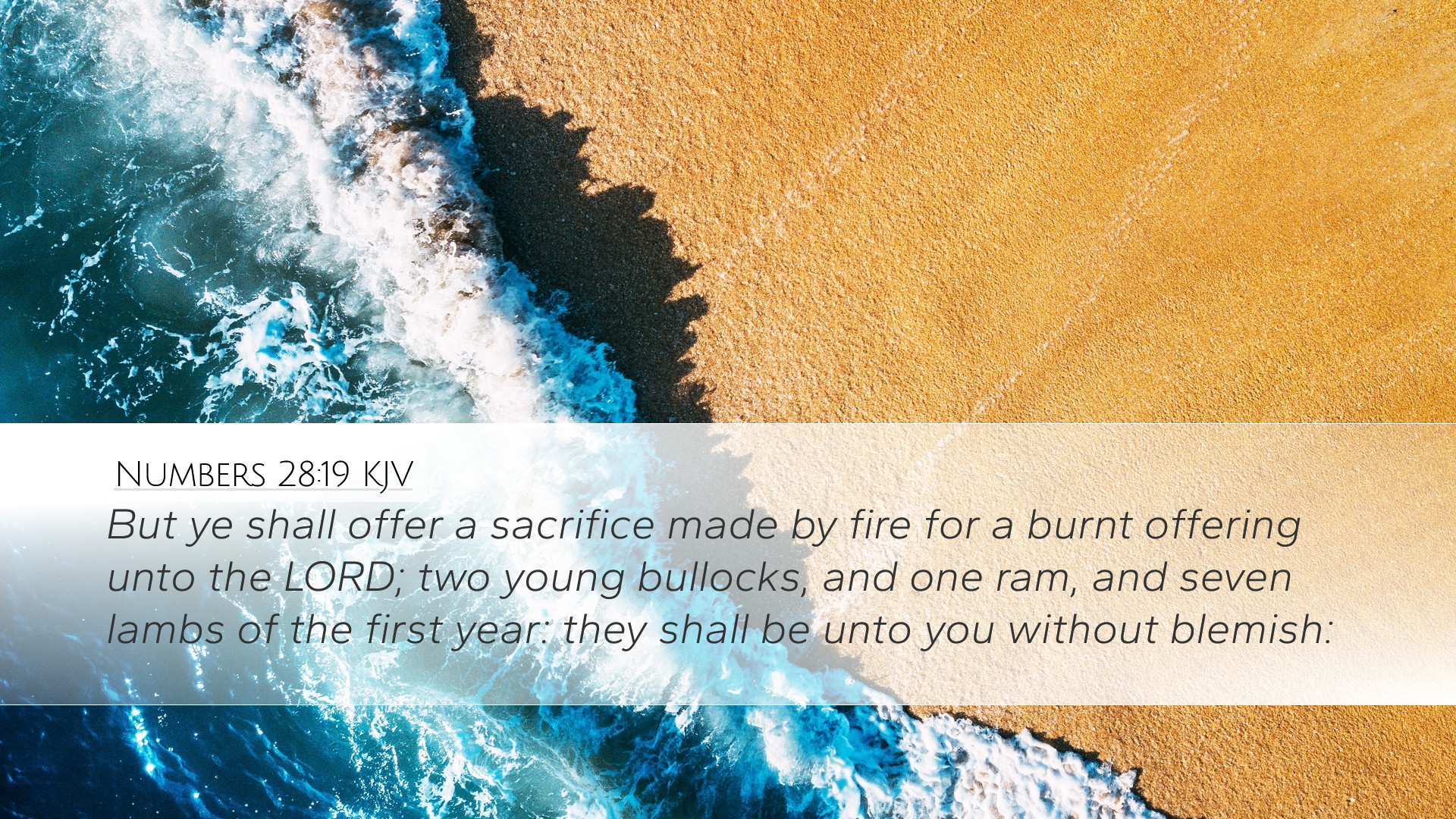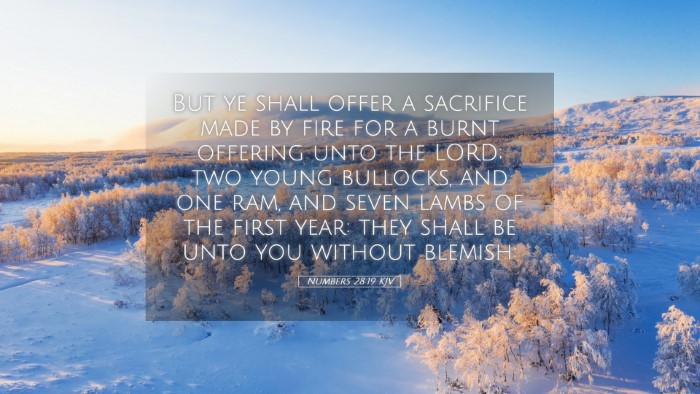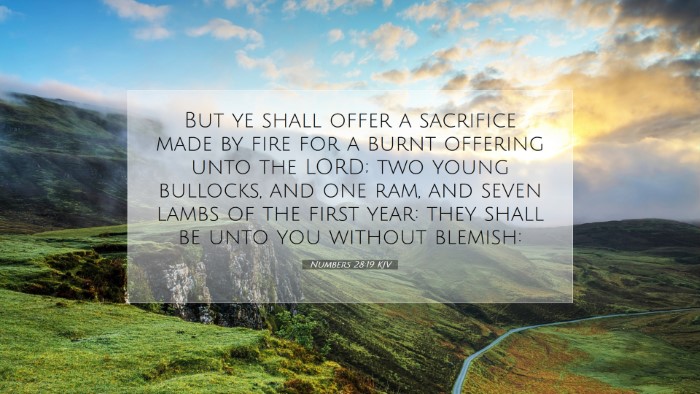Commentary on Numbers 28:19
Verse: "But ye shall offer a sacrifice made by fire, of a sweet savour unto the Lord; two young bullocks, one ram, and seven lambs of the first year; they shall be unto you without blemish."
Introduction
This verse is part of a larger section in the Book of Numbers that outlines the sacrificial system ordained by God for the Israelites. These sacrifices hold significant depth in theology, typology, and the cultural practices of ancient Israel. The offering described reflects a principle of atonement, worship, and communal identity before God.
Contextual Background
The context surrounding Numbers 28 includes a detailed set of instructions for various offerings, particularly focusing on the daily offerings, Sabbath offerings, and festival offerings. This verse specifically pertains to the offerings made during the solemn feasts, establishing a rhythm of worship that is rhythmically intertwined with the agricultural and calendrical life of the Israelites.
Importance of Sacrifice
- Divine Requirement: The offering serves as an act of obedience to God's commands. Matthew Henry emphasizes that sacrifice is an essential element of worship, demonstrating not only reverence but also submission to God’s holiness.
- Sweet Smell: The phrase "sweet savour" indicates the pleasing nature of the sacrifice to God. Albert Barnes notes that this pleasing aroma symbolizes God's acceptance of the worshipper’s sincerity and communion with Him.
- Types of Offerings: The varied offerings—two bullocks, one ram, and seven lambs—represent the abundance and diversity of God's provision. Adam Clarke highlights how these represent the complete dedication of the worshippers to God’s service.
Theological Implications
From a theological standpoint, this verse not only instructs on sacrificial practices but also introduces themes of substitution, atonement, and communal worship:
Substitution and Atonement
- Symbolism of Innocence: The animals offered are to be "without blemish," symbolizing the innocent Lamb of God who would ultimately fulfill the sacrificial system (as understood in Christian theology). Matthew Henry echoes this theme by pointing out that Christ is the ultimate sacrifice, fulfilling the very requirements imposed in the law.
- Collective Responsibility: The collective nature of the offering signifies the community’s shared responsibility for atonement and worship. Albert Barnes mentions that these sacrifices integrate the community into a singular act of worship, promoting unity among the tribes of Israel.
Covenant Relationship
The sacrifices are fundamentally tied to the covenant relationship between God and His people. Adam Clarke articulates this relationship by stating that the offerings are not merely transactional; rather, they embody a deeper connection characterized by love, obedience, and gratitude towards the Creator.
Practical Implications for Today
Understanding Numbers 28:19 extends beyond ancient practices; it offers rich insights for contemporary worship and Christian living:
Worship as Sacrifice
- Life of Worship: Modern believers are called to live sacrificial lives, offering themselves as "living sacrifices" (Romans 12:1). This concept transforms worship from ritual to daily living, emphasizing the integrity of lifestyle as an offering to God.
- Community Worship: The communal aspect of offering indicates the importance of gathering as a body. This speaks to contemporary practices of church, where shared worship and accountability are vital for spiritual health. Matthew Henry underscores that communal engagements in worship foster deeper connections with God and each other.
Holiness and Purity
The command for the sacrifices to be "without blemish" serves as a reminder of God's holiness and the standard He requires of His people. It challenges contemporary believers to seek purity in their lives, aligning their actions and intentions with God’s character. Albert Barnes emphasizes that while Christ fulfills these requirements, believers are still called to pursue holiness in their walk with God.
Conclusion
Numbers 28:19 encapsulates rich theological insights about sacrifice, community, and covenant relationship with God. For pastors, students, theologians, and scholars, this verse serves as a springboard for deeper exploration into the nature of worship and the essence of what it means to offer oneself fully to God. The intricate details of the sacrificial system invite continuous reflection on the profound implications of worship that resonates with the pastoral heart, the academic mind, and the soul of every believer.


